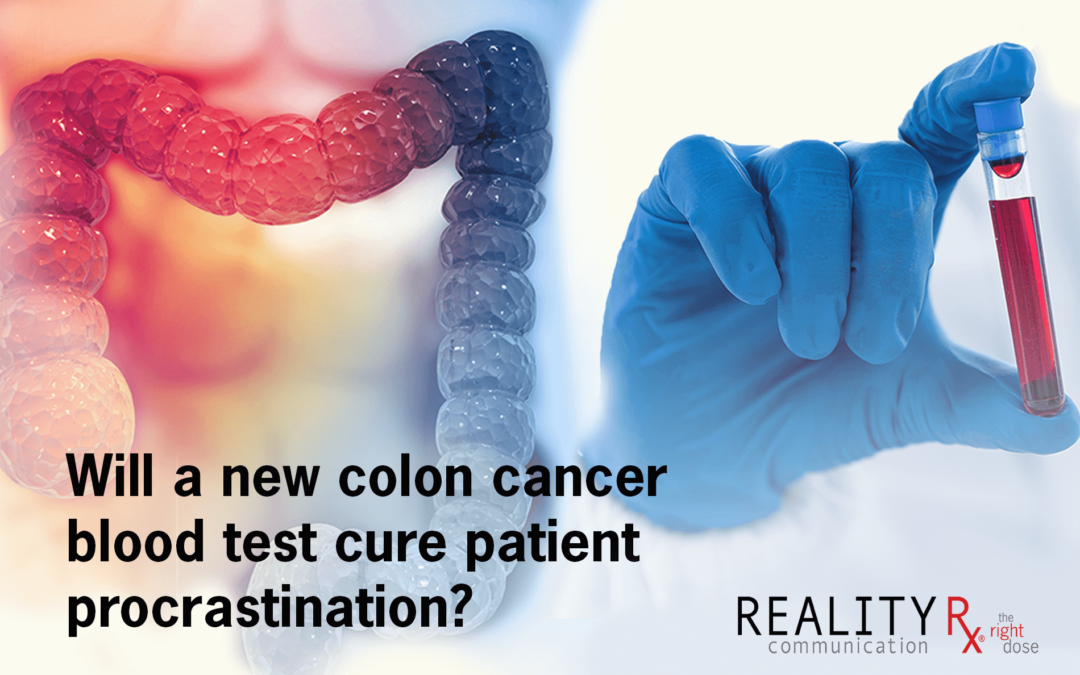Blood vs stool. A new colon cancer screening option may increase adherence.1,2
With colorectal cancer (also known as colon cancer) on the rise, the disease may soon be detected through a simple blood test.3 Colorectal cancer (CRC) is cancer of the colon and/or rectum and occurs when pre-cancerous polyps in the lining of the colon or rectum become cancerous. Signs may include rectal bleeding, blood in the stool, or changes in bowel movements.
Who gets colorectal cancer?
As of 2023, CRC ranks as the second leading cause of cancer-related deaths in the United States.4 Colon and rectal polyps can develop at any age but are most commonly found in individuals over the age of 45. Colorectal cancer rates are particularly high among adults over the age of 50. However, there has been an increase in colorectal cancer rates among individuals aged 50 and under since 2010.4
While both men and women share the same lifetime risk for CRC, men face a higher risk than women at any given age. Black individuals and Native Americans have a higher likelihood of being diagnosed with colorectal cancer and are also more likely to succumb to this disease compared to White Americans.5
Early detection saves lives. Yet many are reluctant to get tested.
Colorectal cancer ranks as the third most commonly diagnosed cancer among adults in the United States.4 Early detection has the potential to prevent over 90% of colorectal cancer-related deaths. Unfortunately, despite the availability of multiple screening tests, more than a third of the population eligible for screening is not up to date.4 At-home stool sample kits provide a discreet option, but research indicates that the idea of collecting fecal samples may elicit disgust. Therefore, exploring alternative approaches that do not involve feces may help to increase participation rates.6

Will a new CRC blood test cure patient procrastination?
The new blood-based test has the potential to improve screening adherence, detect colorectal cancer earlier, and reduce colorectal cancer-related mortality. Results of a clinical trial, recently published in The New England Journal of Medicine, show that the new blood-based screening test detects 83% of people with colorectal cancer.3
If the FDA approves it, the blood test would be another screening tool to detect cancer at an early stage. The test, developed by Guardant Health, can be done from a blood draw. The company says its test detects cancer signals in the bloodstream by identifying circulating tumor DNA.
Survey participants1,2 overwhelmingly indicate a preference for the idea of a blood sample over a fecal sample for CRC screening. Preference was influenced by gender, experience with the sampling method, and the individual’s perception of sampling convenience, sampling comfort, and sample acceptability. The results suggest that blood-based screening tests will likely improve population participation rates.
While any test is better than no test, a colonoscopy is still the best.
The introduction of innovative, non-invasive screening tests (stool and blood samples or both) may be a solution to increase colorectal cancer screening. An actual colonoscopy is still the gold standard for early detection of cancerous polyps.
What’s more, a colonoscopy allows the surgeon to remove and then biopsy polyps and any suspicious tissue. Experts recommend colonoscopy every 10 years for people at average risk as long as their test results are negative, starting at age 45.
People who have an increased risk of colorectal cancer due to their family history, documented advanced polyps, inflammatory bowel disease, or certain inherited conditions (like Lynch syndrome and familial adenomatous polyposis) may receive recommendations to begin screening earlier and with greater frequency.
REFERENCES:
- Benning TM, Dellaert BG, Dirksen CD, Severens JL. Preferences for potential innovations in non-invasive colorectal cancer screening: a labeled discrete choice experiment for a Dutch screening campaign. Acta Oncol. 2014;53(7):898-908. [PubMed] [Google Scholar]
- Osborne JM, Wilson C, Moore V, Gregory T, Flight I, Young GP. Sample preference for colorectal cancer screening tests: Blood or stool? Open J Prev Med. 2012;2(3):326-331. doi: 10.4236/ojpm.2012.23047Â [https://www.scirp.org/journal/paperinformation?paperid=21557]
- Chung D, Gray D, Singh H, et al. A cell-free DNA blood-based test for colorectal cancer screening. Engl J Med. 2024;390:973-983. doi: 10.1056/NE/MEJoa2304714.[https://www.nejm.org/doi/full/10.1056/NEJMoa2304714]
- Siegel R, Wagle M, Cercek A, et al. Colorectal cancer statistics, 2023. CA Cancer J Clin. 2023;73(3):233-254. doi: 10.3322/caac.21772. Epub 2023 Mar 1.
- Carethers JM. Racial and ethnic disparities in colorectal cancer incidence and mortality. Adv Cancer Res. 2021;151:197-229. Published online 2021 May 5. doi: 10.1016/bs.acr.2021.02.007.
- Osborne JM, Flight I, Wilson CJ, et al. The impact of sample type and procedural attributes on relative acceptability of different colorectal cancer screening regimens. Patient Prefer Adherence. 2018;12:1825-1836. doi: 10.2147/PPA.S172143. PMID: 30271126; PMCID: PMC6154741. [https://www.ncbi.nlm.nih.gov/pmc/articles/PMC6154741/]

